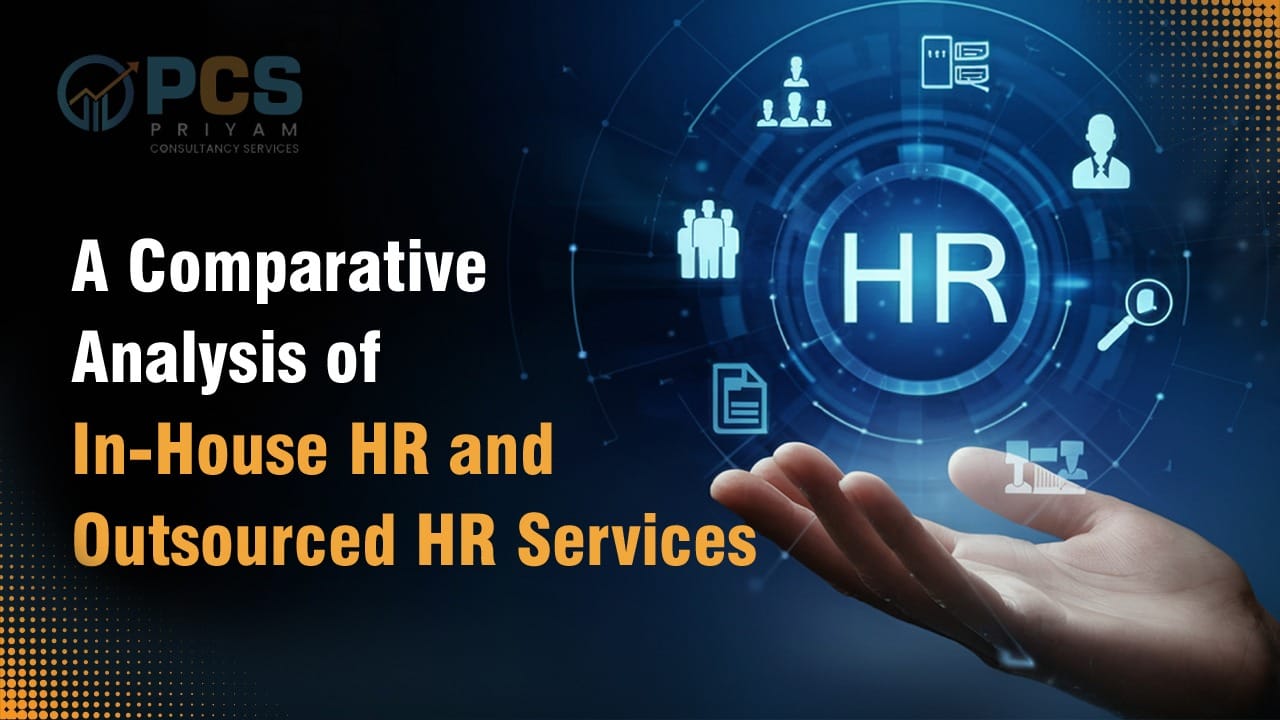Managing multiple responsibilities – marketing, sales, finance, and other roles can be overwhelming as a business owner. Human resource management plays a crucial role in shaping an organisation’s success, everything from employee onboarding to legal compliance.
When it comes to handling HR functions, businesses typically choose between two main approaches:
In-House HR, where an internal team will manage all the HR related tasks, HR Outsourcing involves partnering with an external service provider to take care of HR responsibilities on behalf of the organisation.
Choosing the best approach for HR management can be a difficult task. Both in-house and outsourcing approaches have their strengths and weaknesses. The right choice
ultimately depends on the unique needs of your business, its size, resources, and goals. While both approaches can deliver strong HR outcomes, we’ll show why outsourcing is increasingly becoming the favoured choice for businesses looking to stay efficient, agile, and competitive.
Here’s everything you need to know about HR outsourcing vs. in-house HR to make the best choice for your business.
In-house HR Services refers to a dedicated internal HR team employed directly by the organization to handle all the essential HR functions. These professionals are responsible for core activities such as recruitment, compensation, benefits, employee welfare and maintaining healthy employee relations.
By working closely within the organization, in-house HR teams gain a deep understanding of company culture, internal processes, policies, and employees’ unique needs. For effective HR management, an organization must invest in skilled professionals who align with business goals & strategies.
An In-house HR department provides main advantages, depending on your company’s
needs.
While there are many advantages of in-house HR, there are several challenges to consider:
In-house HR is often preferred by organizations that follow traditional business models and value tight internal control. When strict data privacy and security requirements are a priority, businesses rely on an In-House HR Department to manage sensitive employee information internally. Additionally, larger companies with the resources to hire, train, and maintain a full-scale HR team often choose In-house HR Services to ensure alignment with long-term operational goals.
HR Outsourcing involves assigning various HR services such as payroll processing, recruitment, compliance, and employee benefits administration by partnering with HR outsourcing providers, businesses can tap into specialized HR knowledge and industry best practices to manage HR functions more efficiently.
An outsourced HR department provides five main advantages, depending on your
company’s needs.
While there are many advantages of Outsourcing HR, there are a few challenges to consider:
Outsourcing HR can be a smart move for companies of all size companies but it varies on company’s needs. Whether you’re a start-up, mid-sized firm, or an enterprise, outsourcing provides access to advanced technologies, domain expertise. It allows companies to stay compliant, enhance employee experiences, and streamline core HR functions without the overhead of managing everything internally.
For fast-growing businesses, outsourcing ensures HR scales alongside your workforce enabling faster on-boarding, smoother compliance, and reduced operational constraints.
Every business has unique goals, growth patterns, workforce needs, and an HR structure that should reflect that.
Some companies benefit from a full-time in-house HR department, especially when they require day-to-day employee engagement, culture-building, and leadership visibility.
However, managing HR internally also demands significant investment in hiring, compliance, systems, and training.
For many growing organizations, a hybrid model combines an internal HR presence with external support for payroll, compliance, recruitment, or employee benefits.
At PCS, we help you assess your business needs and build the HR structure that fits — in- house, outsourced, or a combination of both. Our goal is to align HR with your business strategy and support your workforce at every growth stage.




